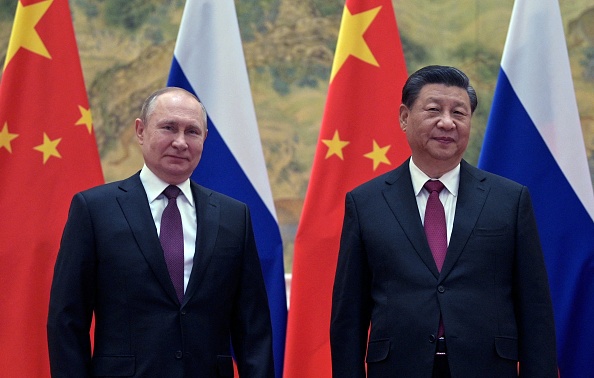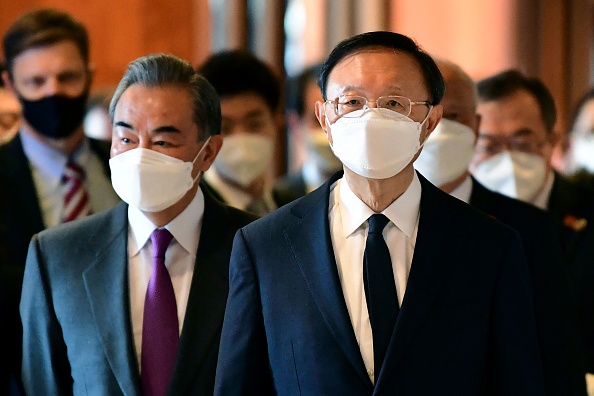
 Unprecedented Oversight
Unprecedented OversightDemocratic and Republican legislators in the Senate and the House of Representatives are moving forward with legislation intended to limit U.S. involvement in China's technology sector. The legislation would be beneficial for American companies investing abroad, as they could protect their technologies and work to rebuild critical supply chains that have been disrupted due to Covid-19 lockdowns and the Ukraine crisis.
The draft is part of a pending economic competitiveness bill aimed at confronting Beijing, and would require American companies and investors to disclose certain new outbound investments and authorize the executive branch to form a new interagency panel to review and block investments on national security grounds.
More than 100 Chief Executives signed a letter urging the U.S. House of Representatives and Senate to send a bill to President Joe Biden for his signature before August recess, so that the bill isn't lost amid the upcoming midterm elections.
The bill has faced opposition from leading business groups such as the U.S. China Business Council, which has called it "unprecedented in 250 years of American history." The Treasury has also expressed concern that increased oversight will reduce the competitiveness of American firms and "quell investment."
Meanwhile, as Shanghai has struggled to rebound from the city's COVID-19 lockdowns, most U.S. businesses have resumed operations but are facing a litany of challenges in bouncing back to normal. According to a survey, just 31% of manufacturing and services companies said they were fully operational and two thirds are now operating at above 75% capacity.
 Walking the Tightrope
Walking the TightropeChinese President Xi Jinping declared his support for Russia's "sovereignty and security" during a phone call with Russian President Vladimir Putin, further signaling that the China-Russia strategic partnership remains unchanged against a backdrop of global tumult.
"Throughout this year, Chinese-Russian relations have maintained a healthy momentum of development in the face of global turbulence and change," Mr. Xi told Mr. Putin, according to the Chinese summary.
The U.S. quickly responded that nations siding with the Russian leader over the Ukraine war will be "on the wrong side of history." Since Russia invaded Ukraine in February, the Chinese government has struggled to walk the tightrope of being an impartial broker for peace in Ukraine and maintaining its ties with Moscow.
The two countries also celebrated the launch of the first highway bridge over the Amur River, which sits at the border of China and Russia. The event was celebrated with fireworks, and local officials applauding from the riverbanks. The bridge is expected to help boost bilateral annual trade to more than 1 million tonnes of goods.
"The Blagoveshchensk-Heihe bridge has special symbolic significance in today's disunited world. It will become yet another thread of friendship linking the people of Russia and China," said Yury Trutnev, the Kremlin's envoy to the Russian Far East.
Read more in "Time for Reinforcement of the Independent Value and Constructive Synergy of Sino-Russian Relations," by Zhao Long, a Senior Fellow and Assistant Director at the Institute for Global Governance Studies at SIIS.
 Diplomatic Dialogue
Diplomatic DialogueWhite House national security adviser Jake Sullivan met with China's top diplomat, Yang Jiechi, earlier this week in Luxembourg to discuss a range of issues, according to a senior administration official. Topics of interest included Russia's war in Ukraine, North Korea's string of ballistic missile tests, and Taiwan.
The official described the meeting, which wasn't announced in advance, as "candid, in-depth, substantive, and productive."
"The two shared their assessments of U.S.-China relations, including an exchange of views of how each side sees the dynamic between our two countries," he said.
Sullivan also reiterated the U.S.' commitment to a "one China" policy and brought up concerns about China's actions in the Taiwan strait. Yang emphasized Beijing's stances on national sovereignty and territorial rights. "This risk [will] increase if the U.S. continues its approach of 'using Taiwan to contain China' and Taiwan's adoption of 'relying on the US for independence'," he said, while agreeing that better communication would "help manage conflicts."
The latest high-level meeting was held after President Biden's inaugural trip to Asia last month that, along with a number of engagements held by the White House over the past weeks to demonstrate its commitment to the Asia-Pacific, is largely viewed as Washington's attempt to counter Chinese influence in the region. The 4 ½ hour talk also came as a potential precursor to a meeting between Joe Biden and Xi Jinping, which the White House has said is possible in the coming months.
Prepared by China-US Focus editorial teams in Hong Kong and New York, this weekly newsletter offers you snap shots of latest trends and developments emerging from China every week, while adding a dose of historical perspective.
- 2022-06-10 Squaring Off
- 2022-06-03 Diplomatic Chills
- 2022-05-27 Competing Visions
- 2022-05-20 Common Ground
- 2022-05-13 Bilateral Interests
- 2022-05-06 Vying for Mutual Benefit
- 2022-04-29 Seeking Relief
- 2022-04-22 Tipping Point
- 2022-04-15 “Persistence is Victory”
- 2022-04-08 No Divorce
- 2022-04-01 Auditing Accountability
- 2022-03-25 Playing Policy
- 2022-03-18 One Hand Cannot Clap
- 2022-03-11 Political Forecast
- 2022-03-04 Competitive Advantage
- 2022-02-25 A Sovereign Tightrope
- 2022-02-18 Strategic Disengagement
- 2022-02-11 In the Thick of It
- 2022-02-04 Year of the Tiger
- 2022-01-28 Zero-Sum
